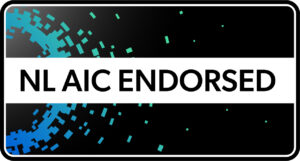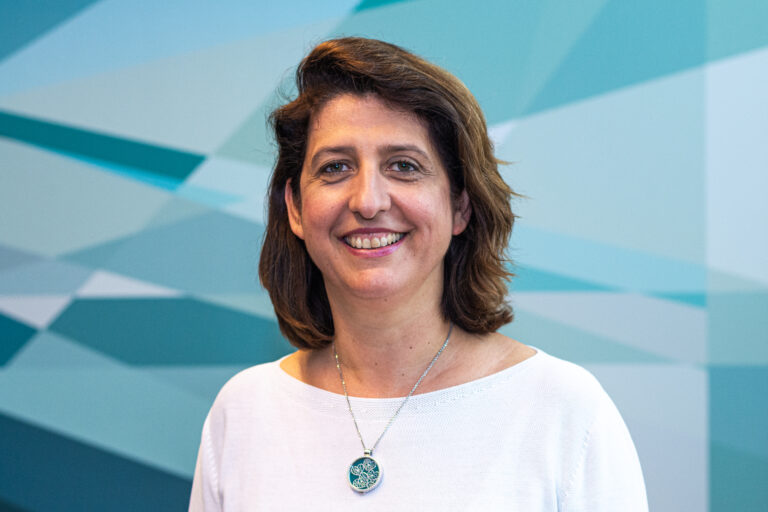This ELSA Lab is developing a toolkit for questions like these, based on the understandings gained from forward-looking Dutch projects from various regions.
What social challenges in AI are being worked on?
The Healthy Society and AI ELSA Lab is working on human centric AI solutions for improving health and well-being. This is in line with Sustainable Development Goal 3 (Good Health and Well-being) of the United Nations.
A healthy lifestyle is one of the most important conditions for a long and healthy life. Healthy living (such as eating healthily and being physically active) is a challenge for everyone, but in particular for people in vulnerable positions, such as those with a low level of health-related skills or those from neighbourhoods with limited resources. Health equality is a huge challenge for society, largely because of the complexity of the factors that determine the psychosocial and ecological system in which we all live. Researchers in many disciplines are working hard to tackle this challenge using artificial intelligence (AI). However, most current solutions are not human centric, meaning that they do not revolve around humans’ complex perspectives, as well as not reflecting enough ethical values (such as autonomy, privacy, human dignity and avoiding harm). In the Healthy Society and AI ELSA Lab, they tackle ethical, legal and social problems, cooperating with all relevant stakeholders such as the public, care providers, private-sector partners, scientists from various disciplines and professional ethicists. This makes sure that solutions are both effective and human centric.
What types of solutions are offered to the end user?
In this ELSA Lab, they are developing a toolkit together with other stakeholders that can be used when developing human-centric AI technology for healthy lifestyles. This toolkit will comprise a broad set of resources that can be used for the ethical, legal and social (ELSA) challenges that need to be tackled for developing this kind of AI technology – not only protocols and guidelines, for instance, but also technology that can be used to personalise AI technology without harming privacy. The core themes for developing the toolkit within the ELSA Lab are privacy, literacy and responsibility.
In addition to the toolkit, stakeholders from various sectors have been brought together to work on solutions for ELSA challenges. This network of parties and the experience they gain by developing solutions for ELSA challenges will make sure that the methodology for finding new solutions gets developed further. The network will share these methods and it is open for new parties who want to join.
What AI methods or techniques are used in the research?
The ELSA Lab has three project lines: Context Analysis & Lifestyle Factors, Human Centric Design, and Personalised Interventions and Decision Support Systems. The collaboration within the ELSA Lab makes it possible to link together the data and the understandings gained from the various projects. This means that the output and/or data collected in one project can also become the input for another project. The projects strengthen each other through such exchanges. The FAIR data principles (findability, accessibility, interoperability and reuse ) are used to facilitate this procedure.
The various problems are studied using AI methods and techniques. Trend analysis and anomaly detection techniques are used for detecting changes in health and behaviour. Predictive models are used to forecast the risk of cardiovascular and metabolic diseases, the effects of possible preventive interventions, and the effects of interventions for patients and other vulnerable groups. Recommender systems and coaching engines are used to help care professionals and patients choose treatments (e.g. preventive) and assist people in making lifestyle changes. The effects of local initiatives are compared in order to get an overview for profiling, nudging, prediction and personalisation of just-in-time recommendations.
Will this ELSA Lab collaborate with other sectors?
This co-creation ELSA Lab collaborates with academic and social partners, patients’ representatives, governmental and business partners. The quadruple helix consortium ensures that future AI-based lifestyle innovations are developed to be human centric.
What is the ultimate success this ELSA Lab can achieve?
The ultimate success that the Healthy Society and AI ELSA Lab could achieve is setting a national example of how a successful ELSA Lab can be set up sustainably, efficiently and effectively, so that innovation and implementations of AI are translated into both direct and indirect health gains at a national level.
In terms of the process, this means a virtual network of researchers, professionals, ethicists, lawyers, policymakers, patients and patient organisations that use innovative solutions that are listed on Health-RI and are translated into regulations such as the Netherlands Medical AI guidelines.
The impact of the Healthy Society and AI ELSA Lab will be in the development of human centric AI tools for healthy lifestyles, successful lifestyle interventions using solutions in the Health-RI toolkit, and a better quality of life for people who are at risk of cardiovascular diseases.
Awarded the NL AIC Label
 The Netherlands AI Coalition has developed the NL AIC Label to underline its vision on the development and application of AI in the Netherlands. An NL AIC Label formally recognises an activity that is in line with the aims and strategic goals of the NL AIC and/or the quality of that activity. NL AIC would like to congratulate the Healthy Society and AI ELSA Lab!
The Netherlands AI Coalition has developed the NL AIC Label to underline its vision on the development and application of AI in the Netherlands. An NL AIC Label formally recognises an activity that is in line with the aims and strategic goals of the NL AIC and/or the quality of that activity. NL AIC would like to congratulate the Healthy Society and AI ELSA Lab!
Interested in more information?
Do you have any questions about this ELSA Lab? Please contact Prof. Andre Dekker, Maastricht UMC+. If you would like to learn more about human centric AI and the ELSA concept, please visit this page.






